A new tomato production starts at Mularski in Poland on December 9. Then the plants will enter the greenhouse after a thorough crop rotation. Meanwhile, the propagation of young vegetable plants is also underway at one of Poland's largest growers. In total, the company has 60 hectares. Because of that scale, Marcin Mularski and his team decided to invest maximally in hygiene. "As a large company, you are extra vulnerable."
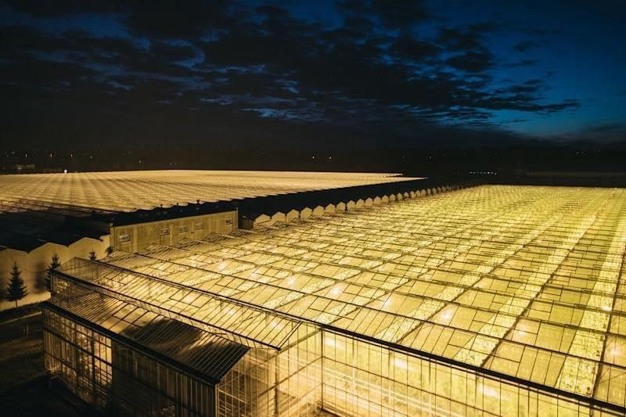
The tomato sector has been wrapped up in virus problems in recent years. Poland did not escape it either. With cultivation consultant Ron Peters of Future Growing, Marcin goes over the latest developments. He has been doing so for many years. "I first met Ron eighteen years ago, at a meeting in the Netherlands. There we got talking about propagating young vegetable plants. From then on, we started working together."
In 2008, Mularski built a greenhouse for the propagation of young tomato plants. "Ron helped us organize the labor, among other things," he says. Later, the propagation of cold vegetable plants was added. "For that, we had to acquire new techniques. Ron was able to help us with that too." Marcin emphasizes that, over time, the cooperation became not only business, but also friendship. For him, it's a lot about trusting people. He has that trust in Ron, on whom he can build, after all these years. "We not only talk business."
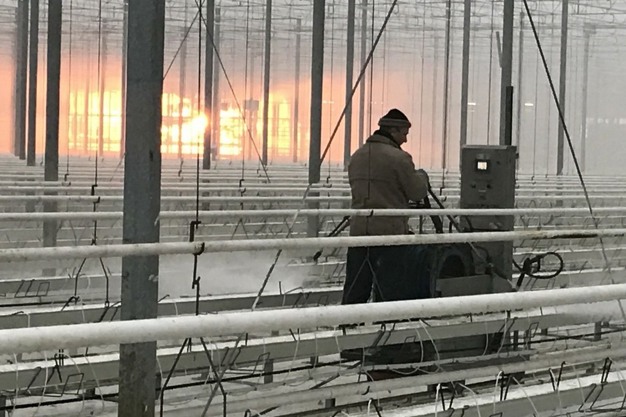
Good results
A few times a year, Ron visits Mularski. Recently, the focus has been on further optimizing the hygiene protocol in tomato cultivation. The tomato grower, who grows vine tomatoes, cocktail tomatoes, cherry tomatoes, "strawberry tomatoes" and loose pink and yellow tomatoes, had no problems, but wanted to keep it that way.
"We changed everything," says the grower in mid-November in the middle of the crop rotation, without exaggeration. A rundown follows, including pointing out machines to help optimize hygiene among those working on the farm. Washing and disinfecting hands, shoes and clothes are all part of it. He also switched to ToBRFV-resistant varieties. "I wouldn't know what else we could do now," he says.
At Mularski, after all the investments, they have a hard time pinpointing which change has really made the difference. The fact is, however, that the grower has had "the best two seasons ever," Marcin stresses. At the company, they regularly test the plants for viruses, among other things. The results have been positive. "We haven't had such good results before. We haven't had any problems with crazy roots either."
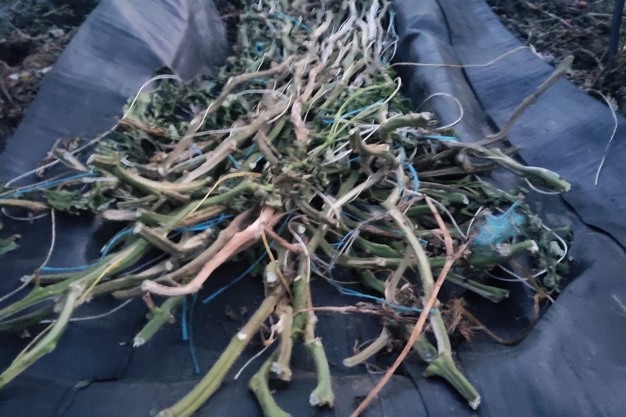
Theory and practice
To thoroughly analyze the entire process, Ron and Marcin regularly walk around the company. "Labor is very important in the hygiene protocol. What you put on paper and have in your head must also be correct in practice. The people in the greenhouse have to carry out what is in the protocol."
In such a large company, there are a lot of people walking around. You can't keep an exact eye on all of them. That's why Marcin relies on good managers. He calls them 'leaders'. "We talk to them every week. We discuss what we have seen in our observations, and what can be improved, without wanting to put too much pressure on them. We do it in consultation."
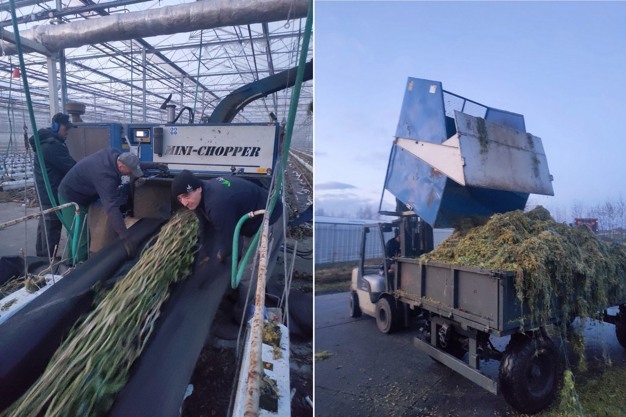
Crop rotation with the company's own people and machinery
Mularski tries to offer employees year-round work. Experienced people teach new people the intricacies of working according to the strict hygiene protocol. Lit cultivation helps to keep employees year-round. During the period when there is no cultivation, people can help with the crop rotation. Because of the diversity in crops, these happen several times per year. "We don't work with contract workers, and do all the crop rotation work ourselves," he said.
One of the important things about hygiene protocol is making sure that clean people, machinery and cultivation materials do not mix with dirty machinery, cultivation materials and people from the greenhouse. The large Polish grower works with its own machinery during crop rotation. "Among other things, we have purchased our own crop shredders for this purpose," he says. To stay up-to-date, Marcin chooses to renew machines every six to seven years. "Most importantly, machines provide labor savings. Right now, I don't see a lot of new machines for this at trade shows."
No hospital
After the end of the cultivation cycle, and the removal of the plants, Mularski's team goes into the greenhouse to clean and disinfect everything. "Even though we have had two very good seasons without any problems, we clean and disinfect everything very thoroughly. We choose prevention, and to do this, on Ron's advice, we use the products that do what they are supposed to do, and are also ecologically sound." One of the products Mularski uses is Fersol. Ron is an international dealer of this cleaning product.
Because of virus pressure in the industry, there is a perception that cultivation facilities are now like hospitals. Marcin recognizes that image, but emphasizes that he does not see his company as a hospital. "In fact, we don't have any issues."
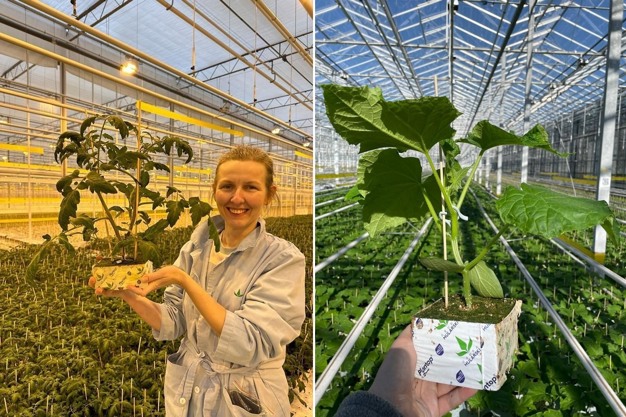
Never give up
At the large Polish company, they realize that new viruses can pop up just like that. That is why they continue to closely monitor the tightened hygiene protocol in Poland. Would they make any technical adjustments, such as more compartmentalization, when building any new greenhouses? Not necessarily, Marcin explains. "We have one-hectare greenhouses, three-hectare blocks and six-hectare blocks. Between those, I don't see any difference in terms of hygiene."
In late November or early December, Marcin expects Ron to visit Poland again. Then, together with the Dutch hygiene expert, he will walk around again to observe and analyze all business processes. And of course, to learn new things again. "Working hard together with all your people, thinking smart and never giving up, that's what I believe in. This is the grower's life."
For more information:
Mularski
www.mularski.pl
Ron Peters
Future Growing
Gantel 12
7891 XA Klazienaveen
+31 (0)6 2505 2941
[email protected]
www.futuregrowing.eu
